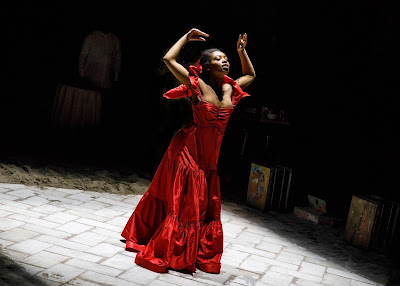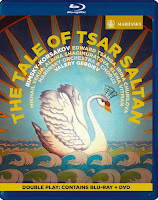the traveler's resource guide to festivals & films
a FestivalTravelNetwork.com site
part of Insider Media llc.
Reviews
Broadway Review—Lucy Kirkwood’s “The Children"
- Details
- Parent Category: Film and the Arts
- Category: Reviews
- Published on Sunday, 17 December 2017 20:46
- Written by Kevin Filipski
The Children
Written by Lucy Kirkwood; directed by James MacDonald
Performances through February 4, 2018
|
Ron Cook, Francesca Annis and Deborah Findlay in The Children (photo: Joan Marcus) |
The ponderous The Children arrives in New York after raves in London, as Lucy Kirkwood’s risible drama about the after effects of a devastating nuclear plant disaster wastes its topnotch cast.
Post-meltdown in rural England, 60-something marrieds (and retired nuclear engineers) Robin and Hazel live just outside the radioactive danger zone. When former colleague Rose arrives out of nowhere, scaring the bejesus out of Hazel—who smacks Rose’s nose in fright, causing a torrent of blood staining Rose’s shirt—Robin and Hazel find themselves dealing with a past that includes infidelity, along with figuring out the kind of future (if any) they’ll have.
The play’s title refers to the couple’s unseen offspring, whom Rose asks Hazel about more than once, along with referring to the play’s strident plea not to ruin our world for our children’s benefit. Kirkwood strains at understatement in her characters’ small talk and British stiff-upper-lipped reserve, however wrongheaded for her creaky melodrama. It's obvious that all three of them are aware of past indiscretions, so why the continued dancing around the subject?
And to extend what might have been a taut fifty-minute one-acter into a flabby one-hundred minute one-acter, Kirkwood drops in irrelevancies like a dance sequence to a song the trio loves, along with a pointless conversation that finds Hazel constantly questioning Rose if she only did number 1 in the loo instead of number 2, which causes the toilet to clog. Rose replies that she only did number 1—and when water comes streaming into the kitchen, (un)hilarity ensues.
Rose isn’t settling old scores or putting their mutual past in proper perspective: instead, she’s asking her fellow scientists to join her at the stricken plant to take over cleanup from the much younger workers currently there. After all, since they’re pushing 70, it makes sense for them to risk their twilight years than those with decades ahead of them. It's a worthy sentiment, but Kirkwood drops it in so heavy-handedly that it has little of the sense of urgency or mortality she was aiming for.
It’s up to three superior performers—Deborah Findlay (Hazel), Ron Cook (Robin) and especially Francesca Annis (Rose)—and James MacDonald’s sympathetic direction to make this shrill message play palatable.
The Children
Samuel Friedman Theatre, 261 West 47th Street, New York, NY
ManhattanTheatreClub.com
Broadway Musical Review—Revival of “Once on This Island”
- Details
- Parent Category: Film and the Arts
- Category: Reviews
- Published on Wednesday, 13 December 2017 23:02
- Written by Kevin Filipski
 |
| Hailey Kilgore in Once on This Island (photo: Joan Marcus) |
OnceOnThisIsland.com
December '17 Digital Week II
- Details
- Parent Category: Film and the Arts
- Category: Reviews
- Published on Tuesday, 12 December 2017 21:35
- Written by Kevin Filipski
Blu-rays of the Week
Death Laid an Egg
(Cult Epics)
Giulio Questi’s wacky 1968 giallo is a product of its time: nodding toward Godard’s masterpiece Weekend (released in ‘67), Questi’s potent critique of a dehumanized industrial society is masked by a tricked-out tale of murder around a poultry plant owned by a philandering husband and his wife.
In the leads, Jean-Louis Trintignant (husband), Gina Lollobrigida (wife) and Ewa Aulin (mistress) make a stunning trio; there are moments of visual overkill, but it’s stylish and enjoyably loony. There’s a quite impressive hi-def transfer.
Heat and Dust
(Cohen Film Collection)
This 1983 Merchant-Ivory adaptation of screenwriter Ruth Prawer Jhabvala’s novel tracks parallel East-West culture clashes, as an Englishwoman, Anne, travels to India to discover the fate of her great aunt Olivia, who in the 1920s had an affair with a local ruler (Hindi film star Shashi Kapoor, who died last week). Although labored in its shuttling back and forth, there are compensations, notably Julie Christie as Anne and Greta Scacchi as Olivia, both splendid performances of intelligence and—especially Scacchi—sensuality.
The hi-def transfer is excellent; there’s also a commentary and a second disc of bonus features: new interviews with Scacchi, Ivory, Jhabvala, composer Richard Robbins, actor Nickolas Grace and producer Israel Merchant; new Q&A with actor Madhur Jaffrey; and Merchant-Ivory’s hour-long 1975 film Autobiography of a Princess.
Pelléas et Mélisande
(BelAir Classiques)
Claude Debussy’s tragic romance is one of opera’s towering masterpieces, its three hours alternately bracing and disturbing. This 2016 Malmo (Sweden) production is nicely staged by director Benjamin Lazar, with Debussy’s magnificent score being beautifully handled by conductor Maxime Pascal and the Malmo Opera Orchestra.
But the glory is in the main performers: Marc Mauillon’s vivid Pelléas and—best of all—Jenny Daviet’s languid, meltingly lovely-voiced Mélisande. The hi-def video and audio are topnotch.
The Tale of Tsar Saltan
(Mariinsky)
Russian composer Nikolai Rimsky-Korsakov’s fantastical opera is rarely seen on European or American stages, so who better than St. Petersburg’s own Mariinsky Opera to present such a boldly imaginative production?
As always, Valery Gergiev persuasively leads his orchestra in music that they all feel in their bones, the usual array of Russian singers belts out convincingly, and the sets and costumes are bright and dazzling. The only caveat is that, since this is on film instead of hi-def video, the visuals don’t pop as they should.
DVDs of the Week
Karl Marx City
(Film Movement)
Petra Epperlein (with co-director Michael Tucker) returned to the former East Germany to discover the truth behind her father’s 1999 suicide by hanging: was he—as he was accused of being—a spy for the Stasi, the formidable East German security force that terrified thousands of ordinary citizens on a daily basis during the Cold War?
Epperlein has no illusions about what she finds, which she shares with her devastated mother and twin brothers, while the rest of this agonizing documentary comprises illuminating interviews with various archivists, former Stasi members and regular people that shed a necessary light on how dictatorships can thrive.
Maurizio Cattelan—Be Right Back
(Film Movement)
Maurizio Cattelan is an art world prankster without the social or political cachet of Banksy, but since he’s courted cognoscenti for decades he’s become one of the most reliable names in the business, and Maura Axelrod’s diverting documentary portrait shows him off as a sort-of raconteur par excellence.
Whether he’s a real artist is another matter: despite the experts, that he gets a Guggenheim retrospective that garners critical raves and lines around the block says more about the state of our current culture than about his clever but minor works.
Off-Broadway Review—“Downtown Race Riot” with Chloe Sevigny
- Details
- Parent Category: Film and the Arts
- Category: Reviews
- Published on Friday, 08 December 2017 20:03
- Written by Kevin Filipski
Downtown Race Riot
Written by Seth Zvi Rosenfeld; directed by Scott Elliott
Performances through December 23, 2017
|
Chloe Sevigny and David Levi in Downtown Race Riot (photo: Monique Carboni) |
In Downtown Race Riot, Seth Zvi Rosenfeld turns cartoons into real characters: with a huge assist from a talented cast and director, of course. But to what end? Nearly two hours of watching a drug-addled mom, her equally damaged children and her son’s friends and acquaintances meander through their mundane existence—culminating with a violent brawl—bring the audience no insight or point.
Mary, a 39-year-old single mom, lives in a West Village railroad apartment with two children by different men: 21-year-old Joyce and 18-year-old Jimmy, known as PNut. Mary has trouble keeping clean, collects disability checks and has a lawyer on the way to discuss suing the city for giving PNut asthma by his eating paint chips when he was younger (which he never did). PNut and his best friend, a Haitian black named Marcel, aka Massive, plan to go to Washington Square Park for an upcoming fight between neighborhood toughs and minority interlopers from other parts of the city. Joyce, though nominally a lesbian, seduces Massive when she comes home, in part to get back at her brother and especially her mom, who she feels cares more for PNut than Joyce.
Rosenfeld draws sympathetic but realistic portraits of his play’s inhabitants, even the “tough” Jay 114 and Jimmy-Sick, or Mary’s coke-snorting lawyer Bob, all of whom initially seem like refugees from Mean Streets or The Sopranos, but are humanized by the writing and acting. Still, the play and these people don’t go anywhere unsurprising: they are fated to remain behind, thanks to class or race, which isn’t an earth-shattering revelation.
Derek McLane’s tremendous set of Mary’s shabby apartment is arrestingly lit by Yael Lubetzky. Scott Elliott’s fluid direction allows the supremely confident performers to play off one another convincingly, whether Cristian Demeo and Daniel Sovich’s amusing would-be wise guys, Moise Morancy’s charming Massive, Josh Pais’s overanxious Bob, Sadie Scott’s tantalizingly ambivalent Joyce, or David Levi’s flailing PNut.
Chloe Sevigny’s Mary is scarily authentic, whether in her pathetic attempts to hide her drug habit—even when she slinks off to her bed, where she holds forth to PNut, Joyce and Massive—or while slinking around in shorts and a halter top (perfectly ugly ‘70s costuming by Clint Ramos) to entice Bob. It’s a marvelously physical performance that makes her character and the play she’s in seem substantial.
Downtown Race Riot
The New Group @ Signature Theatre, 480 West 42nd Street, New York, NY
thenewgroup.org
More Articles...
Newsletter Sign Up















